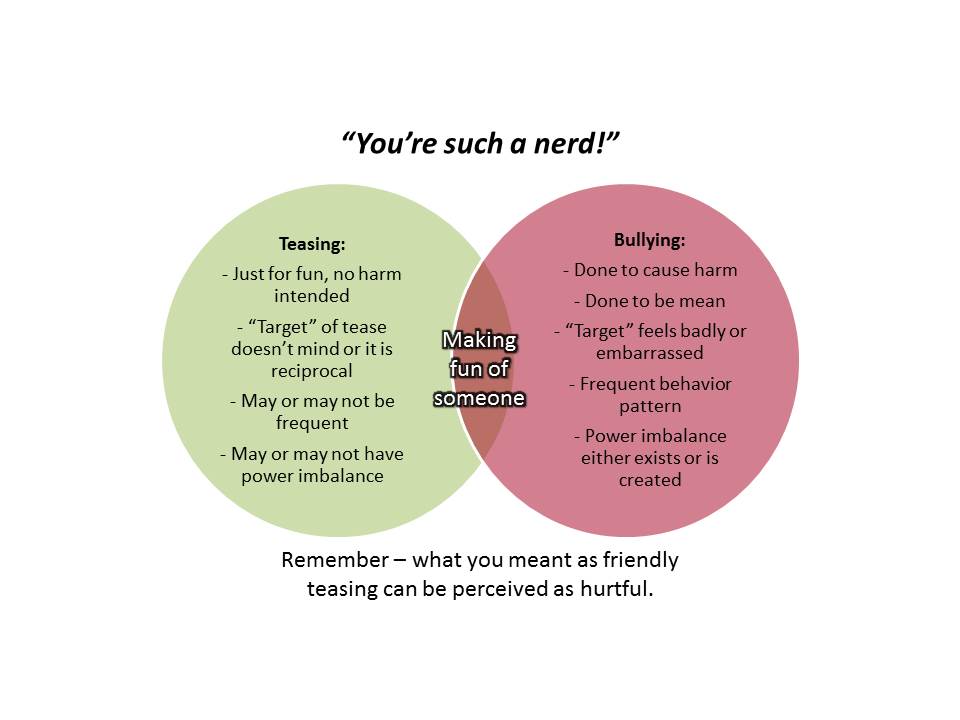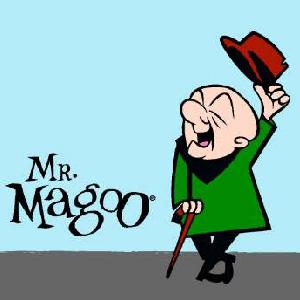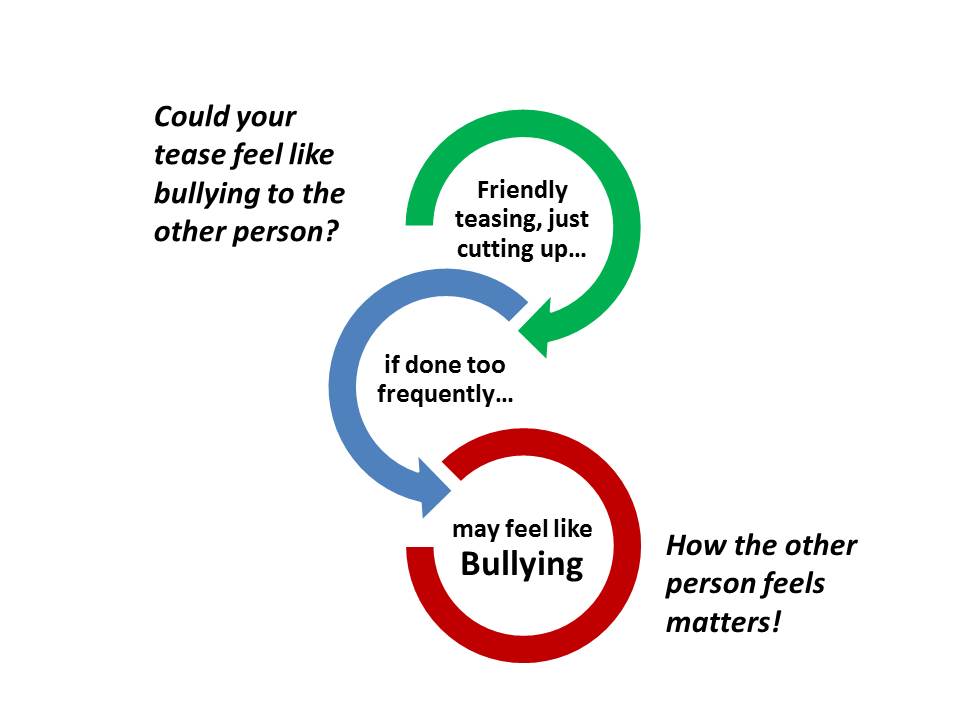It is important that we grasp the difference between teasing and bullying. The difficulty is in the context nuances. I love to tease and cut up with friends. Just enough people have laughed at my jokes and teasing over the years that I think it is part of my charm (emphasis on think). It is my personality, my wit, my sense of humor. At least, that’s my opinion – but what others think is probably more important. It is easy to go too far. If I suddenly realize I have just enjoyed my humor at someone else’s expense – oops, too far. Hurtful.
Accidentally hurtful? My kids used to say, “Dad, I didn’t mean to…” My response was always the same broken record. “You have to mean not to.” Accidental or intentional – hurt is hurt. What I was trying to convey was that each individual is responsible for his or her own actions and that each has an obligation to consider likely outcomes in advance. Then we can act or not act – but it is an intentional decision. We have to “own” our actions. If the message I send is intended as friendly teasing but is received and perceived as hurtful – it means I need to think through my actions and words more carefully.
Perception – is truth to the one perceiving. We’ve heard this a thousand times and it is true. So, does it really matter if I don’t think my comment is hurtful? Nope. What matters is how the other person receives my comment.
What about intentionally hurtful comments? Well, that’s a whole different ballgame. It could be a one-time thing but if it is a pattern, then it may fall into the category of bullying.
The definition of bullying in many school districts is pretty close to this: Bullying is unwanted harmful behavior that involves an imbalance of power and happens over and over again. So, it involves harm, power, and frequency.
One dictionary definition of teasing is: Make fun of or attempt to provoke in a playful way. Other dictionaries add that there could be malicious intent and it still be teasing. Okay, so that part is debatable, but as we use it here, teasing is not intended to harm and is intended playfully. Power is not a part of the definition.
So, when does teasing become bullying? How far is too far?
Example: One person says to another, “You’re such a nerd!”
• If it is on The Big Bang Theory, Leonard or Sheldon might actually be proud to hear this – one scientist needling another brilliant (though perhaps socially disconnected) scientist.
• If it is between two bright students who are friends – again, they might chuckle and the one being teased may take a certain delight. “Yes! I nailed that problem!”
• If it is between a jock teasing a brilliant student who happens to have zero athletic ability but who is desperately trying to fit in, maybe it is just plain hurtful.
• If the jock and his buddies say it repeatedly to the brilliant student, now it is just plain bullying.
The context is what makes it so difficult to define any given action or statement as bullying. Why? It’s not just the action or statement – it can be in the tone, look, setting, personalities, current or previous friendships, maturity of the relationship, audience, intent, the power balance, or frequency.
Maybe the Venn diagram below can help you see how lines get blurred and teasing can easily progress to bullying.
 I have a great friend who used to work with me. One day on a business trip he said and did something that was pretty goofy – much like Mr. Magoo, the cartoon character, would have done. I chuckled and called him Magoo. He knew it. I knew it. We both genuinely laughed. Not long after, something else happened and I thought of it and called him Magoo again. I think both of us still thought it was funny.
I have a great friend who used to work with me. One day on a business trip he said and did something that was pretty goofy – much like Mr. Magoo, the cartoon character, would have done. I chuckled and called him Magoo. He knew it. I knew it. We both genuinely laughed. Not long after, something else happened and I thought of it and called him Magoo again. I think both of us still thought it was funny.
Here’s the deal, by about the 30th time I called him Magoo, it was definitely only funny to me – he was hacked. Somewhere early in the process I had inadvertently crossed the frequency line and was now being hurtful – and was completely unaware I was bullying.
Could your teasing feel like bullying to the other person?


Keep up the helpful work and bringing in the crowd!